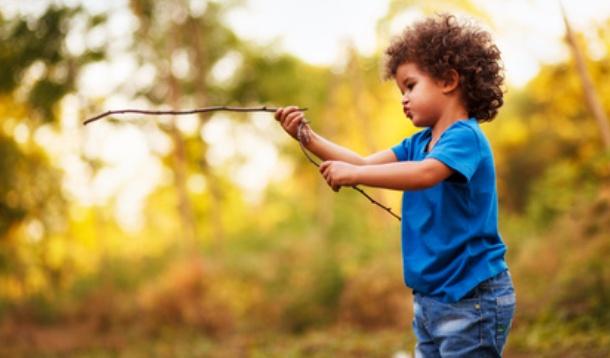We all know kids are often bubble wrapped these days as compared to past generations. New research confirms the bigger danger to children's health isn't broken bones; it's obesity and chronic disease.
A position statement in the International Journal of Environmental Research and Public Health found that kids who engage in more “risky" play - such as "climbing and jumping from a height, unsupervised play where a child could get lost, cycling fast down a hill, playing with knives, or playing near water or cliffs" - will reap the benefits later.
Risky play improves self-esteem and self-regulation in kids who ironically are less likely to take dumb risks with sex and drugs as teens. The statement's author Mark Tremblay believes the greater risk to a child's health is "risk deficit disorder."
He claims that as parents we have a pretty skewed view of what constitutes an actual risk.
So concerned about your child's safety? “Well, never put your kid in a car – it’s the most common place for a child to die,” says Tremblay.
In the Ottawa study, out of 10,000 hours of play only an average of 1.5 injuries were reported. In other words, broken bones can happen. But they rarely do - and they're rarely the serious, spinal/head variety.
Though the majority of Canadian parents of 10-12 year olds worry about "stranger danger," the real dangers lurk within the home: online.
“Parents have to have a balanced view of this," says Tremblay. "Their child at home is 500 times more likely to meet a stranger – the internet has many cyberbullies. Children won’t develop resilience without getting a little hurt and getting back up again.”
But Rome wasn't built overnight. Tremblay suggest parents start small: by leaving their children unsupervised for just 20 minutes. I know this to be true, yet it fights every instinct in my body.
Not everyone wants to be Indiana Jones, after all. While some kids are naturally risk-averse, others are born risk-seekers. So everybody should be encouraged to explore and find their own limits.
If we don't start somewhere, our kids are the ones who will suffer in the long run.
